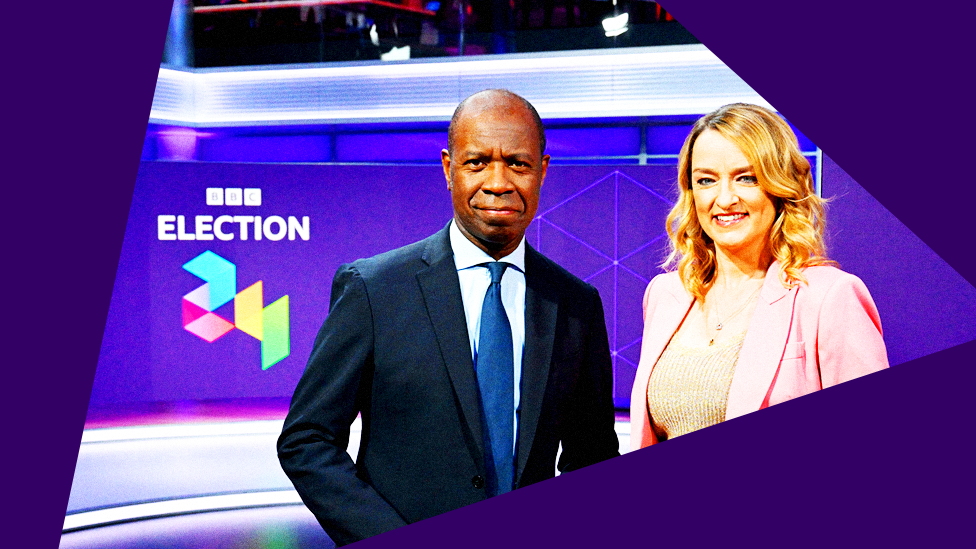How the BBC reports polling day
- Published

The BBC, like other broadcasters, is not allowed to report details of campaigning or election issues while polls are open on the day of the general election, 4 July.
The BBC prepares detailed election guidelines which are written and published for each election, and they include guidance about polling day.
On polling day, the BBC does not report on any of the election campaigns from 06:00 BST until polls close at 22:00 BST on TV, radio or bbc.co.uk, or on social media and other channels.
However, online sites do not have to remove archived reports, including, for instance, programmes on iPlayer. The lists of candidates, as well as the manifesto guides, remain available online during polling day.
Coverage of what is happening on the day is usually restricted to uncontroversial factual accounts, such as the appearance of politicians at polling stations, or the weather.
It tends to focus on giving information that will help voters with the process of going to polling stations.

Subjects which have been at issue or part of the campaign - or other controversial matters relating to the election - must not be covered on polling day itself until the polls have closed.
That means no opinion poll on any issue relating to politics or the election can be published until the polls have closed.
While the polls are open, it is a criminal offence to publish "exit polls" which includes surveys on how people have said they have voted in the election and may also offer a prediction on the election result based on what voters have said.
The BBC, however, is still able to report on events which are not directly related to the elections; and if there are stories about the mechanics of polling day, especially if they might contain important information to help voters, such as an incident at their local polling station, then that too can be reported, but, of course, with impartiality and editorial justification.
From 22:00 BST, after the close of the polls, the election guidelines no longer apply - but the BBC must still report on the election, of course, with the impartiality requirements set out by both Ofcom and the BBC's own Editorial Guidelines.